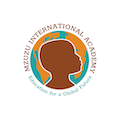Education Insights:June 2023.
As we move towards the end of the Academic year, I would like to review what I have covered so far this year. In addition, I would like to show the importance of a broad and balanced curriculum that does not only cover academics.
this year. In addition, I would like to show the importance of a broad and balanced curriculum that does not only cover academics.
My Blogs so far, this year, have covered a variety of educational topics, including reading, maths, the hidden curriculum, change, play, homework, special educational needs, and Assessment for Learning. The list is long, but not exhaustive and there are plenty of other topics to cover. Primary education is an extraordinarily complex subject, on which, extensive research has been conducted over many years.
One of its main complexities is the rapid social and cognitive development that young children undergo during their years at Primary school. From Reception to Year Six there are massive physical, emotional, and mental changes. This means that ‘what’ we teach and ‘when’ is very much dependant on a child’s developmental readiness.
Children, of course, do not come as a standard package. Education would be much more straightforward if they did. They will be at differing developmental stages, have different interests, come from differing cultural backgrounds, or have different academic abilities. The days of “One size fits all” education are, thankfully, long gone. Teachers now differentiate classwork, so that children of differing abilities are challenged at their level or are referred for additional support.
Obviously, academic subjects form the core of what we teach. Language, reading, maths and science, along with history and geography are the mainstay. However, it is also important that children are exposed to a much broader se t of experiences. Art, music, drama, computing, physical education, Personal, Health and Social Education (PHSE) and community service are all part of a balanced curriculum, one which gives opportunities for the less academic, but differently talented pupils a chance to shine and highlight talents for which they should be celebrated.
t of experiences. Art, music, drama, computing, physical education, Personal, Health and Social Education (PHSE) and community service are all part of a balanced curriculum, one which gives opportunities for the less academic, but differently talented pupils a chance to shine and highlight talents for which they should be celebrated.
The teaching of creative and practical subjects is just as important to the education of the whole child as traditional academic disciplines. The development of emotional intelligence, how to work with others in a team, how to deal with social situations and understand other people’s points of view, are also essential skills that must be taught. Not everyone is destined for academia and maybe we value it too highly. There are so many other talents that our children may have that need just as much encouragement and support.





